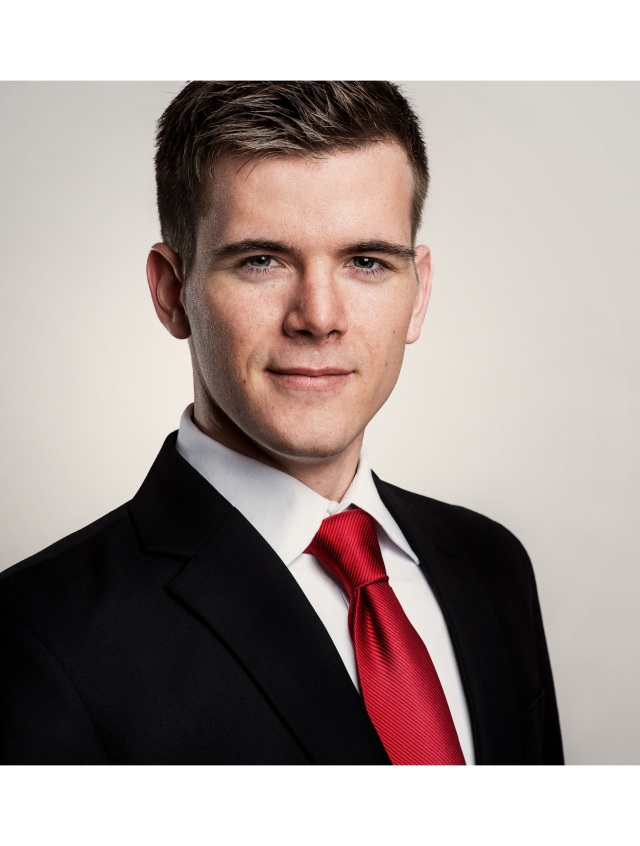08/16: Career Steps: Seven Questions to Master@IBM Alumnus Carsten Roth
 You got your undergraduate degree in Industrial Engineering from the Duale Hochschule in Mannheim. What were the most important factors in your decision to follow up your bachelor’s degree with a master’s?
You got your undergraduate degree in Industrial Engineering from the Duale Hochschule in Mannheim. What were the most important factors in your decision to follow up your bachelor’s degree with a master’s?
A bachelor’s degree certainly is a good foundation to start a professional career. A master’s program then gives you the opportunity to specialize in a more specific subfield and enhance your expertise. The competencies you acquire in such a program definitely have a positive impact on the course of your career.
After your dual bachelor’s degree that combined theoretical studies and professional experience, you chose to enroll in another dual program, the Master@IBM program. What do you think is the key benefit of a program that incorporates professional experience?
The key benefit to me is the experience you gain during the time you spend at the company. Professional experience makes up 50% of a dual bachelor’s degree. In most cases, you will have the opportunity to become acquainted with a wide variety of departments. Doing a couple of comparatively short internships while getting a traditional university degree just doesn’t provide you with the same experience.
The Master@IBM program even takes it a step further: professional experience makes up about 70 to 80% of the program. Depending on the field and position, you have the opportunity to work in different departments and different industries both nationally and internationally. It can be challenging to combine with the intensive phases at the HECTOR School, but the experience, competencies, and skills you acquire more than make up for it.
What were the main reasons why you wanted to do your master’s at KIT?
The Master@IBM program gives us the opportunity to choose virtually any graduate school or business school. I made the conscious decision to study at the Karlsruhe Institute of Technology, or the HECTOR School. Unlike other business schools, five of the ten modules focus on technological content, and the professors at KIT teach these modules exceptionally well.
In combination with the remaining modules that focus on “traditional” management methodology, you get a highly diversified methodological toolkit comprising both qualitative and quantitative approaches, which is incredibly useful for the rest of your career.
Looking back on your master’s at the HECTOR School, what were the most important elements and/or components that you think will have a lasting impact on you?
Apart from the know-how I acquired, I would say the collaboration with other students. That is where professionals of various nationalities and from different backgrounds come together. The joint management modules even allow you to exchange ideas with students of other programs. It was a particularly enriching experience to be able to work on different case studies with such a competent and diverse team.
Your master’s thesis deals with the evaluation of optimization models for transportation problems in reverse logistics, based on a special optimization method. How would you summarize the results of your work in a few sentences and how do you think it benefits IBM?
My thesis is situated within the field of operations research and deals with mixed-integer programming. I analyzed an optimization problem that is based on an actual problem of our customer and developed an optimization engine. Later, I was able to use this generalized version to implement such an engine for our customer. So the findings of my thesis were incorporated into a concrete project right away, which has been helping a customer save larger sums of money for several weeks now.
What area are you currently working in at IBM and what direction would you like to take in the future? Do you think your master’s degree could pave the way for your personal development?
I have been working as an SAP consultant for about two and half years, and the know-how I acquired at the HECTOR School made it possible for me to also work in the field of mathematical optimization.
After completing my master’s degree, I decided to position myself even more broadly. To that end, I went to Beijing on a scholarship from the German Academic Exchange Service to study Chinese at a university for 16 months, full time so to speak.
After that, I am looking at several scenarios, such as continuing my career in consulting. It is important to me to be able to advise customers holistically, which includes the consideration of technical parameters. The knowledge and methodological competence I acquired combined with the impressions I got through the exchange with other students really provided me with a solid foundation for that.
Finally, one question about your new role as an alumnus of KIT and the HECTOR School: what would you consider useful so the network of peers from different industries all over the world that was established by the HECTOR School can continue to exist?
I have the impression that it would be very hard to establish an alumni network in Germany that has the same quality as those common in, for instance, the United States. I can only speculate as to why.
I would, however, consider it valuable if alumni could be inspired to share their current experiences in the industry on a regular basis – such as organizing a tour of their company for students. Their work environment possibly has some links to what the students are taught in their lectures. And it would be really great if any issues from that environment could be tackled in case studies. The company of the alumnus could then benefit from the results of those case studies, too.
Thank you for your time!